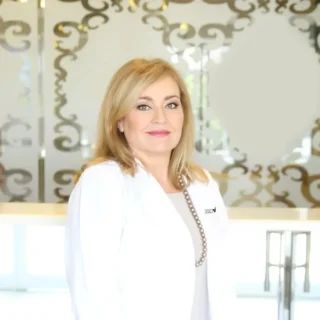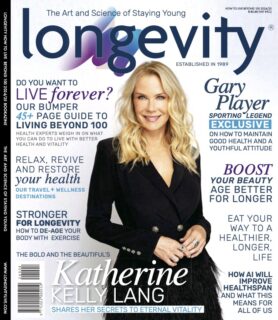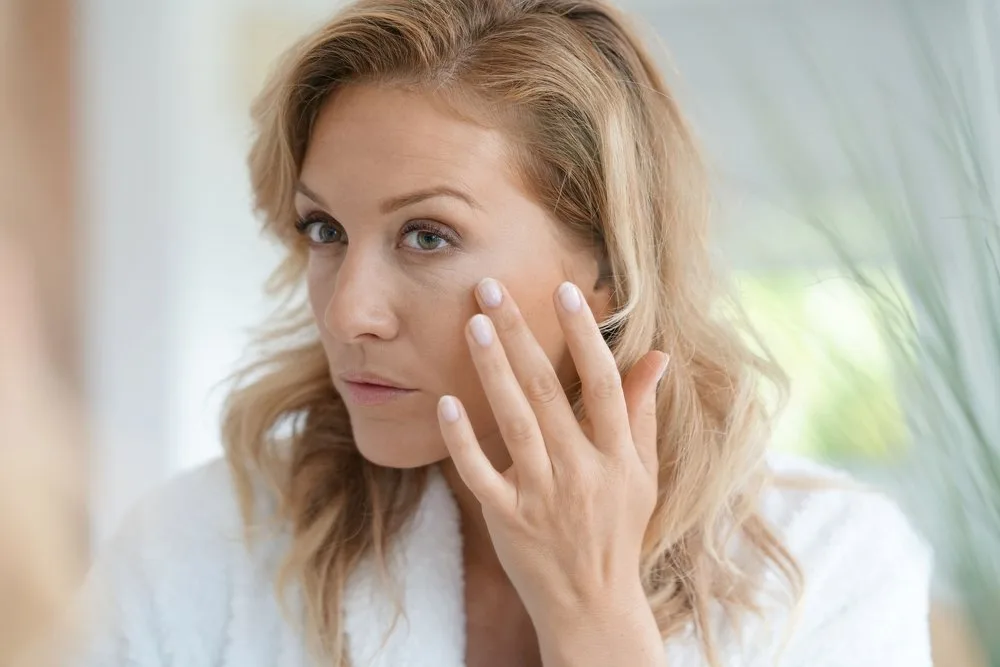What comes to mind when we hear “anti-aging”? Typically, we associate the word with Botox, peels, and other aesthetic treatments. Why? Well, our skin is often the first part of our bodies that reflects signs of aging. Indeed, aesthetic medicine is great for reviving faces marked by the passage of time. However, according to Dr. Maureen Allem, anti-aging goes beyond wrinkle-free skin.
The road to anti-aging is very much an inside job as it is an outside one. For instance, zero fine lines in a body with hormonal imbalances miss the key to true anti-aging treatment, and the key is to adopt a holistic approach. As it turns out, a crucial ingredient to the youthful radiance recipe is diet and lifestyle changes.
We interviewed Dr. Maureen Allem, founder of Skin Renewal (a group of medical aesthetic clinics in South Africa). She discussed how anti-aging includes both the prevention and reversal of the signs of aging. And treatment is not limited to skin care products and aesthetic procedures. We need to inspect the inside of our bodies too.
Dr. Allem unpacks all the strategies and treatments available during the aging phases in our How to Live Beyond 100 bookazine.
Dr. Maureen Allem on the role of hormonal health in aging
Hormone regulation is critical to navigate the aging process with vitality. But it’s something all of us need to prioritize – no matter our age. Dr. Allem explained how pregnenolone and DHEA are the grandmother and mother of hormones, respectively. However, they begin to decline from the age of 35. Their role is to produce testosterone, estrogen, progesterone, and cortisol. Only, too much stress can release one of these hormones in excess. And we’re speaking about cortisol.

Dr Maureen Allem
Now, cortisol has the potential to be unloving. It’s completely disruptive when put in the driver’s seat for too long. This hormone interferes with progesterone’s ability to do its job. For one, progesterone is considered a natural anti-depressant and supports our sleep. That’s why stressing comes at the expense of our slumber and happiness! On top of that, the body uses available progesterone to make more cortisol if needed.
Consequently, lower progesterone levels lead to higher estrogen ones. Estrogen dominance is linked to endometriosis, fibroids, melasma, and mood swings. Still, estrogen has its place. In the right amounts, it keeps our skin hydrated and radiant. Nevertheless, our skin loses its plumpness as estrogen declines with age. Certainly, balance is what it’s all about. But how can we maintain optimum levels to feel our best?
The fundamental pillars of health
Our bodies are interconnected. So, it’s not enough to rely on pills to clear our symptoms. Holistic health is about recognizing how one factor affects another. To illustrate, poor gut health can impact mood. This is because our guts make the most of our serotonin (our happy hormone).
Poor concentration could be linked to omega-3 deficiency or sleep issues. Do you struggle with estrogen dominance? Well, a bad diet impedes your liver from detoxifying excess estrogen. As mentioned by Dr. Allem, it’s all nuanced and connected.
On that note, she listed the fundamental pillars of health to address hormonal dysregulation:
- Sleep
- Stress management
- Detoxification
- Insulin regulation
- Gut health
- Inflammation
- Omega 3:6 balance
Sleep is the foundation of optimal well-being
Dr. Maureen Allem uses the pillars of health as a roadmap to uncover the root of a patient’s issues. However, sleep sets the foundation of this house of health. It’s the place where the body restores itself. Hormones balance and our brains detoxify. Only, sleep may not be quite as relaxing in menopausal women. Hot flashes are problematic, but so is sleep apnea – and it’s of greater concern.
According to Dr. Allem, our reproductive muscles keep our throat tissues firm. However, hormonal fluctuations during menopause cause them to become more collapsible. This way, we’re more vulnerable to developing sleep apnea.
“What happens in deep sleep is that the whole body relaxes. [With obstructive sleep apnea], the tongue falls back and stays back for three seconds or more, and the oxygen drops which is not good,” explains Dr Allem, “Then, all of a sudden, the body wakes you up. [Your body] goes into sympathetic over-activation. You then start to feel more stressed when you’re sleeping than when you’re awake.”
Sleep disruptions can make sleeping pills look more inviting. But they only mask a larger problem. Therefore, Dr. Maureen Allem urges people to get to the bottom of why sleep eludes them. Additionally, it could help to visit a sleep lab, since sleep apnea often goes undetected.
Dr. Allem stressed the importance of stomach acid for nutrient absorption
Many people don’t realize that we get lower stomach acid as we age. Why is this the case? Well, our stressors seem to increase or become more taxing. So, the body responds to this by decreasing the stomach acid that the stomach produces.
When this happens, our bodies cannot break down food properly and absorb nutrients. Nevertheless, stress is not the only factor at fault. Anti-inflammatories are corrosive to the gut. So, your body automatically reduces stomach acid if you take these meds regularly.
Besides this, what about our food sources of vitamins and minerals? Dr. Allem says that the fruits and vegetables we eat today do not have the same nutrient profiles as those eaten 100 years ago. This is because everything is over-cropped; the soil is not rested enough. That’s why choosing organic produce is better because we’re not meeting our micronutrient needs. That being said, our nutrient absorption depends on our stomach acid levels.
“Vitamin D3, Vitamin K2, magnesium, zinc, boron, and silica, are so important for all the spark plugs of the energy process. With osteoporosis, [these vitamins and minerals] modulate the cells that break down bone, and they improve the cells that make bone,” explains Dr Maureen Allem, “But if you have low stomach acid, you’re hardly absorbing anything.”
Grab the latest issue of Longevity Magazine
 Are you interested in balancing your hormones naturally?
Are you interested in balancing your hormones naturally?
Do you want to direct your anti-aging efforts towards what you eat and how you live? Access a digital copy of our How to Live Beyond 100 bookazine via Zinio. Alternatively, readers living in South Africa may purchase a hard copy in select retail stores.
Featured Image Source: goodluz/shutterstock
Watch the interview
View this post on Instagram





![women [longevity live]](https://longevitylive.com/wp-content/uploads/2020/01/photo-of-women-walking-down-the-street-1116984-100x100.jpg)










